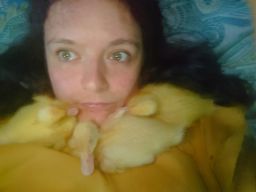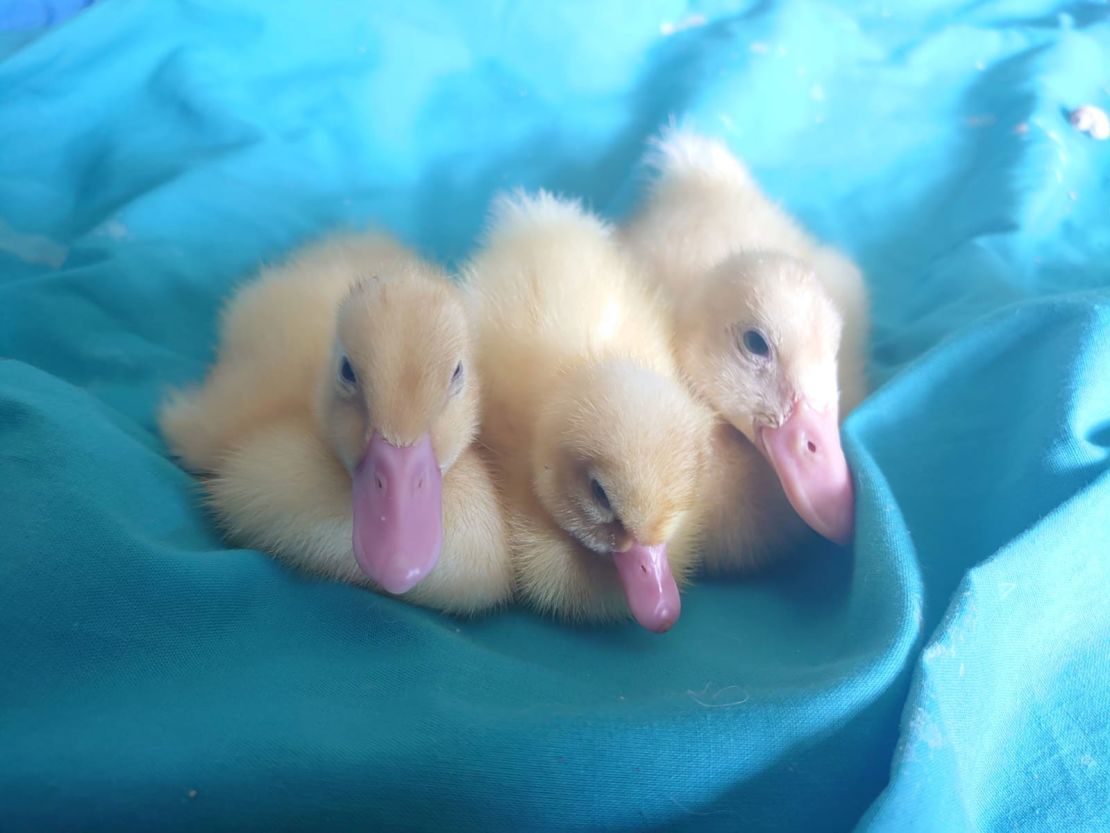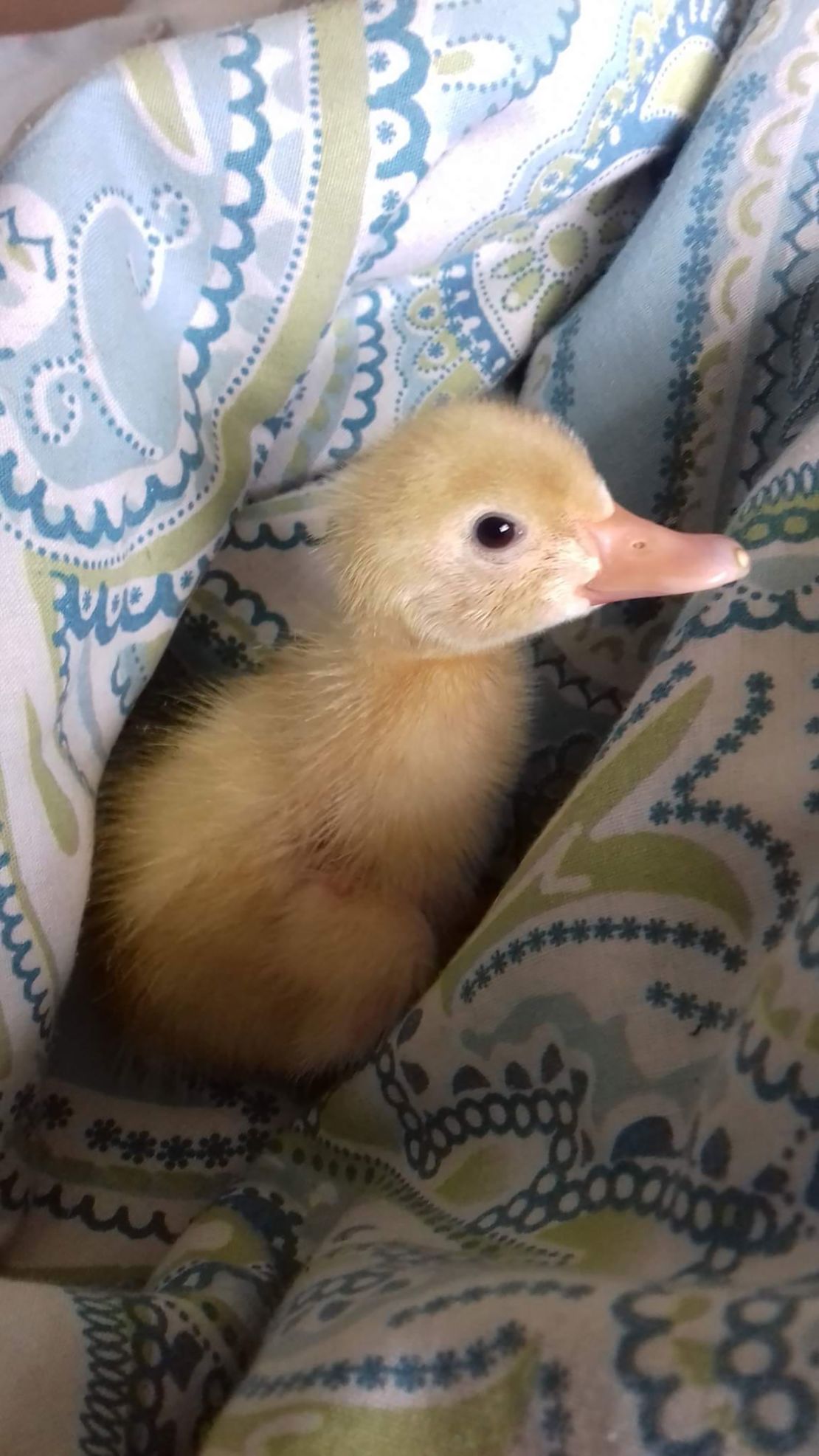A British woman has hatched three ducklings she named Beep, Peep and Meep from eggs she bought at supermarket chain Waitrose.
Charli Lello, 29, decided to incubate the Clarence Court duck eggs while she was furloughed from her job as an assistant retail manager because of the coronavirus.
“I got the idea from a video that popped up on my Facebook feed of someone hatching quail eggs,” she told CNN.
“That was my original plan but whilst I was in Waitrose I saw the duck eggs and thought they might work too. Mum and I had briefly spoken about getting some ducks after lockdown anyway.
“Part of me thought it would never work, none of the quail eggs developed but after 6 days in the incubator I checked the duck eggs and could see veins and a very tiny wiggly embryo. Then the excitement kicked in.”

“I spent the whole two days that Beep was hatching glued to my incubator. Thankfully I had friends at the end of the phone to keep me calm. He was a lone chick for two days so I had to make a little sling out of a beanie hat and carry him around until Peep hatched. Meep joined a week later.”
Lello, who also keeps chickens, plans to keep the ducklings in her home in Hertfordshire, north of London, until they are fully feathered, and then move them to live outside with her chickens.
She said it was “a great feeling” but anyone wanting to do the same should do their research, and ensure they had the right set-up and space to care for ducks – and a back-up plan.
Waitrose said in a statement sent to CNN that it was only on “rare” occasions that an egg sold in its supermarkets would be fertilized.

The high-end supermarket said that because it was “notoriously difficult to identify the sex of egg-laying white-feathered ducks,” males were sometimes left with groups of females and there were also rare instances when a wild duck (female) encounters a farmed drake (male).
It said that without incubation, fertilized eggs “are entirely indistinguishable from normal eggs” when eaten.
Clarence Court said in a statement supplied to CNN that its eggs traveled from farm to packing center to supermarket depot to store, so “it is a feat of remarkably slim odds that a duckling has been hatched.”
“Duck egg production is a very small industry, and the separation of males from females relies wholly upon the skill of very few qualified people.”

Unlike commercial laying hens, for example, laying ducks are all white-feathered and similar size when grown. “Most drakes can be spotted by a little curl to the tail feathers, although not all of the drakes possess this visual marker.
“Our ducks are kept in small flocks with access to the outdoors every day. In this open-air environment, while it is infrequent, our ducks may attract the attention of wild drakes. So, whilst it is very unusual for males and females to come into contact with one another, it is not impossible.”
